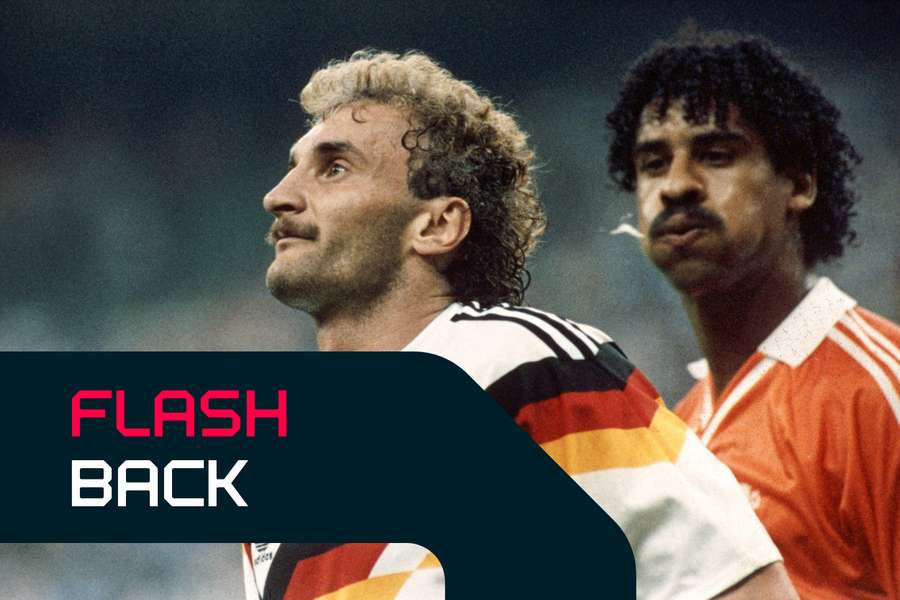The fierce rivalry between the Netherlands and West Germany boiled over when Frank Rijkaard and Rudi Voller were both sent off after a heated clash - involving insults, spitting, and utter chaos that shocked the world. More than just a game, it became a symbol of pride, tension, and lasting football drama.
Dutch-German fierce rivalry: Roots in history
To feel the atmosphere surrounding that night, one must first understand the deep-seated rivalry between these two footballing nations. While the sporting tension had grown over the years, its roots lay in the painful history of World War II.
The Nazi occupation of the Netherlands during the war left scars that extended far beyond politics and society. They filtered into football as well.
That tension reached a sporting peak in the 1974 World Cup Final, when a Johan Cruyff-led Dutch side - seen as the more stylish and innovative team - was defeated by a pragmatic and ruthless West German team on home soil in Munich.
For many Dutch fans, that loss still stung in 1990, and it fueled the animosity that simmered whenever the two sides met.
A match filled with malice
Heading into the 1990 clash, both sides were loaded with talent. The Netherlands were reigning European champions (Oranje won Euro 1988, held in West Germany), boasting stars like Ruud Gullit, Marco van Basten, and the already mentioned Frank Rijkaard.
West Germany, led by captain Lothar Matthaus and striker Rudi Voller, were a disciplined and determined unit.
The tension was evident from the first whistle. Fouls came thick and fast, and neither side showed much interest in fair play. The defining moment came in the 22nd minute. Rijkaard was booked for a tackle on Voller and, as Rijkaard took up position for the free kick, he spat in Voller's hair.
Voller complained to the referee and was booked as well. From the resulting free kick, Voller handled the ball and then went to ground - according to his own account, to avoid a collision with Dutch goalkeeper Hans van Breukelen.
However, Rijkaard and van Breukelen saw it differently, interpreting Voller's fall as a dive in search of a penalty. Van Breukelen reacted angrily, and Rijkaard, already infuriated by Voller’s behaviour, escalated the situation by twisting his ear and stamping on his foot.
The referee had seen enough and sent both players off. As the pair of troublemakers made their way off the pitch, Rijkaard spat in Voller’s hair a second time.
The footage of Rijkaard's spit landing in Voller's hair (which is also the title photo of this article) became iconic. Even decades later, it remains one of the most notorious moments in World Cup history. The German press nicknamed Frank Rijkaard "Llama" for his spitting.
Aftermath and redemption
Despite the drama, the match continued with both teams down to 10 men. West Germany ultimately won 2-1, with goals from Jurgen Klinsmann and Andreas Brehme, while Ronald Koeman scored a late consolation for the Dutch.
West Germany would go on to win the tournament, defeating Argentina in the final. For the Netherlands, the early exit was bitter, especially after the promise and potential shown at Euro 1988.
Remarkably, in the years that followed, both Rijkaard and Voller would reconcile. The two even joked about the incident in later interviews, proving that what happens on the pitch should stay on the pitch.

